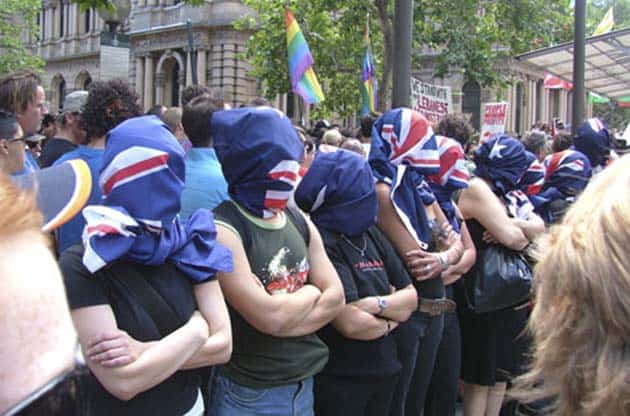As a boy, I remember my parents hustling us out of the cinema the moment the film ended…to avoid having to stand for the national anthem.
We were far from alone. There was a mad scramble—because if you left your run too late, you were turned into a pillar of salt by God Save the Queen (this was England, but Australians of the same vintage will tell you the same story).
In those days, avoiding the anthem was a form of sport. But when the Murdoch media got wind in late October that Muslim students at a primary school in Victoria had left assembly to avoid singing Advance Australia Fair, all hell broke loose.
Principal Cheryl Irving told the Herald Sun that during the month of Muharram, Shia Muslims did not take part in joyous events as it was a period of mourning.
It didn’t matter to Murdoch writers that the children had left for religious reasons, with the permission of their parents and the school, or that they had rejoined assembly once the music had finished.
As columnist Miranda Devine put it: “To spurn this deeply symbolic public display of patriotism is a statement of disrespect and disloyalty, which implies a rejection of Australian values.”
The reality, of course, is that the children were avoiding music, not the anthem. Not so very different from Christians who abstain from pleasures during Lent or who avoid eating meat on Fridays.
But now the matter has been raised, here are some reasons why socialists would recommend giving the anthem a very wide berth.
A song of war
The earliest known sound recording of Advance Australia Fair was in a short film made in about 1916 to dramatise the arrival of Australian troops in Egypt on their way to Gallipoli.
Today, the song continues to be closely woven into Australia’s military symbolism—played on Anzac Day, at war memorials and on the front lines of war.
It is the song under which the Australian military has gone to war in Iraq, Afghanistan and now Syria, and intervened to maintain Australian sub-imperialist interests in East Timor, Bougainville (PNG) and the Solomons.
A song of racism
The original version, published in 1879, didn’t mince words. Verse three put it this way:
From England soil and Fatherland,
Scotia and Erin fair,
Let all combine with heart and hand
To advance Australia fair.
In other words, Australians could be English, Scottish or Irish, but they couldn’t be Aboriginal or Asian.
The modern version is more subtle but excludes Aborigines and Torres Strait Islanders just as effectively.
And as many refugee rights activists have pointed out, singing “For those who’ve come across the seas/We’ve boundless plains to share” while locking up asylum seekers on remote islands is barbaric irony.
Trashing the environment
The lines made more sense when first sung in 1878, with large tracts of the country and its continental shelf not yet impacted by industrial agriculture:
Our land abounds in nature’s gifts
Of beauty rich and rare
Bill Gammage, in his book The Biggest Estate on Earth, talks about how the soil before European invasion was loose and rich. Today it is compacted. Water runs off it.
He writes: “Topsoil blows away, hills slip, gullies scour, silt chokes, salt spreads.”
According to the Queensland government, steep, unprotected cropping lands in tropical areas can lose up to 400 tonnes of soil per hectare per year.
Song of the 1 per cent
The words sound egalitarian—“wealth for toil”—but the reality is that those with the wealth don’t toil, and those who toil don’t get the wealth.
As the Australian Council of Social Service reported in June: “A person in the top 20 per cent wealth group has a staggering 70 times as much wealth as a person in the bottom 20 per cent.”
Between 2004 and 2012, the wealth of the top 20 per cent increased by 28 per cent while the wealth of the bottom 20 per cent increased by just 3 per cent.
An audience apparently united by the anthem is, in reality, bitterly divided by class.
So the next time you’re urged to stand, just remember that you’d be singing our rulers’ tune.
By David Glanz






